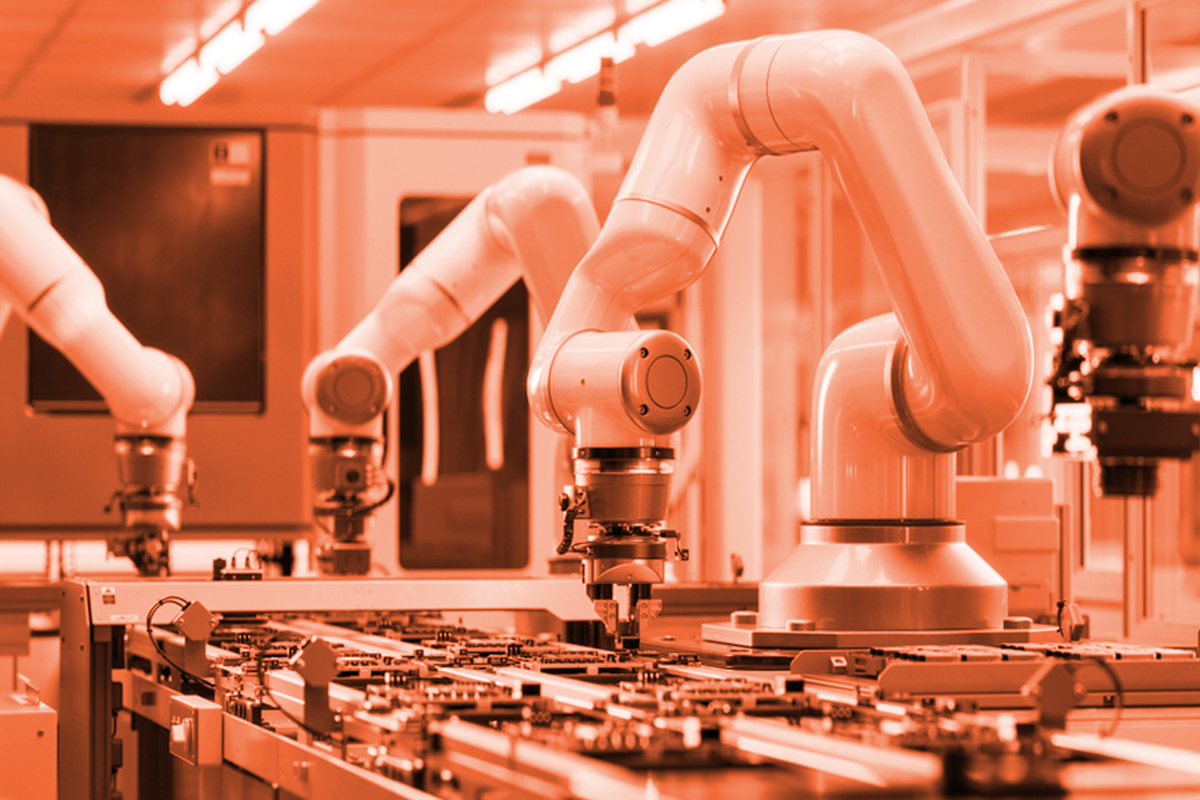The topic of AI in manufacturing is not, in itself, new, but it has remained largely obscure to the uninitiated, hidden behind technical terms such as machine learning and deep learning. There is no denying that the phenomena related to generative AI has sparked new interest in practices and applications that have been established for years. In fact, generative AI represents only one of the many areas of application of artificial intelligence.
The explosion of AI in manufacturing
Having made it clear that generative artificial intelligence is only one application in this field, it is important to recognize that its potential contribution to the manufacturing sector is relatively marginal.
In contrast, other branches of the discipline, such as machine learning already mentioned, can open up a significant range of opportunities.
However, it is undeniable that the focus on the generative AI phenomenon has had a major impact on the market.
As evidenced by this analysis¹, growth estimates have significantly increased since 2023, when generative tools became mainstream. Therefore, the potential benefits of using AI in manufacturing, which contributes to product quality and efficiency, should be explored .

Learning from experience and mistakes: how to do it with AI
It is no secret that productive excellence benefits from historicity and experience, even when errors or problems emerge. Traditionally, this wealth of knowledge has been handled empirically and ineffectively.
Thanks to machine learning and advanced analytical tools made possible by artificial intelligence, it is now possible to gain unprecedented insight into improvement margins, making them analyzable, measurable and manageable even through production management tools.
Data collected by companies are thus transformed into added value, benefiting production efficiency and product quality management. And this is the leading theme of AI in manufacturing: harnessing data by turning it into actionable information that also benefits production departments, quality control and so on.
Improving product quality with AI in manufacturing
To understand the benefits of AI in manufacturing, it is useful to consider the various stages of the supply chain. At the preliminary stage, AI can assist in production planning, enabling the modification of machinery and plant parameters based on the raw materials used and adapting them to specific particularities, including by supplier or batch.
The use of collected data also makes it possible to intervene on the most critical stages of the process, identifying problematic points and progressively modifying them, using a systematic approach and avoiding the trial-and-error methodology, which is often a source of inefficiencies.
In quality control, advanced tools, for example visual inspection, can now be introduced to automate it, make it more efficient and reduce the number of defective products reaching the market.
Improving efficiency through artificial intelligence
Undoubtedly, one of the main areas where AI-based tools support the manufacturing industry is inprocess analysis: identifying inefficiencies and bottlenecks based on certain data is a significant improvement that many companies have already implemented. However, there are other promising applications on the rise, such as the use of artificial intelligence for more agile and efficient production control.
Machines operated in this way are able to perform tasks with a higher level of complexity with less training and programming effort, precisely because they can draw on a more comprehensive and structured knowledge base.
An emerging phenomenon from this feature is collaborative robotics: next-generation machines designed to work alongside workers, improving efficiency and quality of work without the rigidities of traditional automation systems. In this context, the smart machine becomes almost a hybrid between an advanced tool and a robotic assistant, an efficient and functional solution that often also improves the acceptance of technology in production departments.
AI in manufacturing: not a revolution but continuous improvement
The adoption of artificial intelligence in manufacturing has not been a sudden revolution, but a process of continuous improvement that is substantially and progressively transforming the industry. AI is not simply a new technology; it is a catalyst that enables companies to make the most of their resources, optimizing production processes and improving the quality of final products.
The use of tools based on machine learning, deep learning and other AI-based technologies has made it possible to analyze and interpret huge amounts of data, turning once unused information into valuable resources for increasingly informed decisions. This ability to learn from experience makes AI an indispensable tool for the future of manufacturing.
Want to learn more? Learn from the voice of our experts about Regesta LAB’s success stories and best practices.
Note ¹: Markets and Markets, Artificial Intelligence in Manufacturing Market.